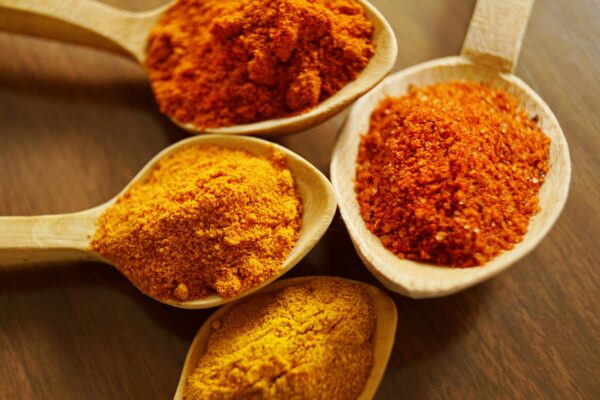
- Muscle-building supplements include protein and creatine which help build muscle mass.
- Beta-alanine is another supplement that may boost endurance and stamina.
- Branched-chain amino acids and beta-hydroxy-beta-methylbutyrate may speed up recovery and build muscle.
- Visit Insider's Health Reference library for more advice.
When it comes to gaining strength and muscle mass, eating right and lifting weights are the best places to start. But muscle-building supplements can also be a helpful addition to boost the impact of your workouts.
Taking supplements can help maximize your gains alongside resistance training — which can be any type of strength training — allowing you to more effectively grow or maintain muscle mass, says Michaela Devries-Aboud, assistant professor in the kinesiology department at the University of Waterloo.
Here's what you need to know about the best supplements for building muscle and how they may help you achieve your workout goals.
1. Protein
Protein is the building block of all the cells in our body. Protein's primary function is to build and repair muscle cells, making it an essential element of muscle growth. While you naturally get protein from the foods you eat — like meat, beans, and eggs — a protein supplement can be a helpful complement to achieve your workout goals.
A 2018 review analyzed the results of 49 studies to determine the effects of protein supplementation on muscle mass and strength. The review found that protein supplementation significantly increased changes in strength and muscle size during periods of prolonged resistance training.
Consuming protein up to two hours after your workout is the ideal timing for building muscle mass. You can add it either as a post-workout supplement or as a substitute for a protein-containing meal if you don't have time for a regular meal, says Jose Antonio, professor of Exercise Science at Nova Southeastern University.
When it comes to health risks, some protein powders are high in added sugar and calories, so you'll want to be sure that you're checking the label of your supplement so as not to consume extra calories or cause a spike in blood sugar.
2. Creatine
Creatine is a naturally occurring amino acid in your body's muscles. Your body converts creatine to phosphocreatine and stores it in your muscles, where it's then used for energy. People frequently take creatine supplements to improve their athletic performance and increase their muscle mass.
In fact, consuming five grams of creatine daily has been shown to increase lean body mass, as well as improve strength and endurance, with no harmful side effects, says Antonio.
This is the ideal amount to supplement if you want to see persistent effects on muscle mass and strength, says Devries-Aboud. In terms of how exactly to consume creatine, she recommends a combination with a carbohydrate, like mixed with juice, which has been shown to increase muscle creatine stores and prevent urinary creatine loss.
When supplemented during a period of resistance training, creatine has been found to induce greater increases in muscle mass, strength, and functional performance in both older adults and younger adults. According to the Mayo Clinic, creatine is most beneficial to athletes who need short bursts of speed or muscle, like sprinters and weightlifters.
3. Beta-alanine
Beta-alanine is an amino acid that is produced in the liver and found in foods like poultry and meat.
It can improve endurance and might even help you crank out a few extra reps during strength training workouts, says Jacob Wilson, who holds a doctorate in exercise physiology and serves as CEO at Applied Science and Performance Institute.
Beta-alanine works by buffering the pH in our muscle cells — as the pH drops, we get that burning sensation that feels both great and miserable at the same time, he explains. Beta-alanine can help slow the drop in pH, which means we're not as limited by that uncomfortable feeling, and our muscles can function properly for just a little longer.
A small 2012 study revealed that six weeks of taking two grams of beta-alanine daily increased time to exhaustion by 19% during high-intensity interval training (HIIT). Participants received five doses of 400 milligrams of the supplement over the course of each day.
Beta-alanine is most impactful when you supplement before a workout. Supplementation currently appears to be safe in healthy populations at recommended doses of 4 to 6 grams daily.
4. Branched-chain amino acids
The three branched-chain amino acids (BCAAs) are leucine, isoleucine, and valine. The most essential is leucine because it has been known to stimulate muscle growth on its own. Like protein, you get BCAAs through food sources like red meat, dairy, chicken, fish, and eggs. But supplements can help specifically with muscle recovery.
A small 2010 study looked at the effect of BCAA supplementation on squatting in particular. The results showed that the participants who supplemented with BCAAs — 100 milligrams per kilogram of body weight — before a squat exercise session experienced reduced delayed onset muscle soreness and muscle fatigue compared to a placebo group. These results suggest that BCAA supplementation may suppress muscle damage.
When taken in doses of 10 to 20 grams pre-exercise, BCAAs can reduce muscle soreness, says Antonio.
If being taken in the form of a supplement, you should add BCAAs during a workout or immediately after. In terms of health risks, there's generally very little to be worried about when it comes to BCAA supplementation. Follow the instructions and be sure to take them at the right time.
5. HMB
Beta-hydroxy-beta-methylbutyrate, better known as HMB, may decrease protein breakdown and increase protein synthesis, resulting in increased muscle strength and mass. Like beta-alanine, HMB appears to speed recovery from high-intensity exercise.
HMB is what Wilson describes as a conditional supplement, recommended in certain scenarios. For example, if you like to work out in the morning before eating, he recommends supplements like HMB, which can help reduce protein breakdown during training.
If we train in a fasted state, our bodies might break down some muscle tissue to provide energy. Supplements like HMB reduce that breakdown, meaning we can stay closer to an anabolic, muscle-building, state and might not get as sore the next day.
Insider's takeaway
Physical training imposes quite a bit of stress on the body, and supplements can help ensure you're getting the fuel your body needs to grow stronger. While supplements can be an effective way to support your weightlifting goals, they're not required to see gains.
"It's important to remember that supplements are meant to be just that: supplements for our training and diet," says Wilson. "If you're looking for shortcuts or ways to avoid hard work, supplements aren't going to cut it."










